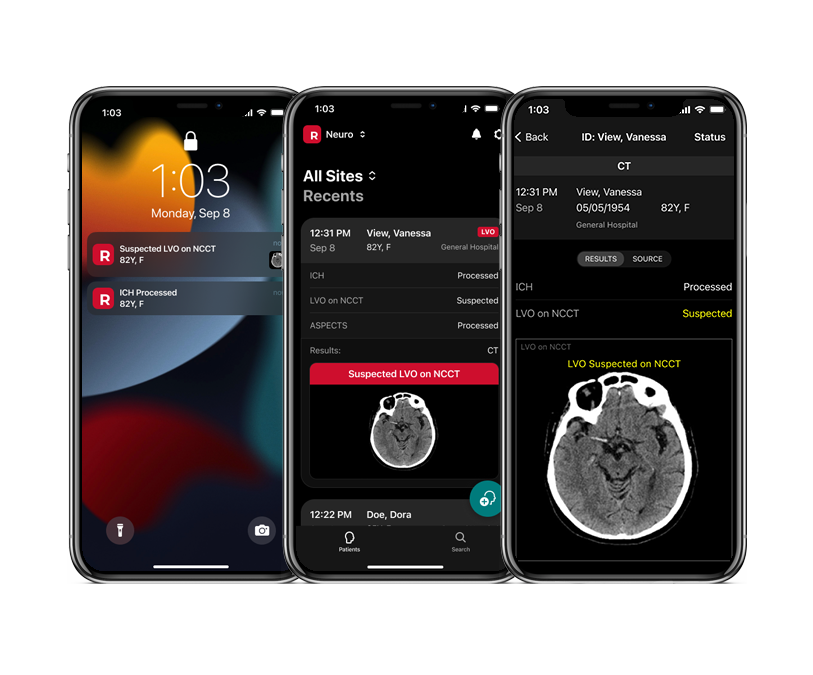Non-Contrast CT Imaging Solution Accelerates Acute Stroke Triage
Posted on 01 Aug 2023
In the area of stroke management, speed and accurate diagnosis are vital for improving patient outcomes. For healthcare facilities and mobile stroke units that are on the front lines of patient assessment, access to additional contextual data is key to facilitating more rapid and informed decisions regarding patient triage and transfers. Now, a non-contrast CT imaging solution designed to accelerate acute stroke triage aids in quicker decision-making related to patient treatment and transfers while promoting a higher standard of care equity.
RapidAI’s (San Mateo, CA, USA) Rapid NCCT Stroke is a non-contrast based solution aimed at improving stroke and trauma care by identifying suspected intracranial hemorrhage (ICH) and large vessel occlusion (LVO) through value-based CT imaging. It employs artificial intelligence to examine non-contrast CT (NCCT) images, determining suspicions of ICH and LVO in the distal internal carotid artery (ICA) and the M1 segment of the middle cerebral artery (MCA-M1). This fully automatic system then sends triage and priority alerts via PACS, email, and the Rapid mobile application. Since NCCT imaging is readily available and is the first choice for imaging stroke and trauma patients, Rapid NCCT Stroke allows care teams to make quicker decisions regarding time-sensitive workflows and patient transfers. For hospitals performing advanced imaging, the use of Rapid NCCT Stroke can considerably cut down the time gap between CT and CTA scans.

The unique triage and notification algorithm of Rapid NCCT Stroke is the first to deliver integrated suspicion output based on various stroke-related indicators. This aids physicians in making quick, time-sensitive stroke workflow decisions through faster alerts of suspected ICH or LVO. The system provides rapid analysis of value-based CT images, speeding up the decision-making process in healthcare facilities of all care levels. When compared to general radiologists, Rapid NCCT Stroke has shown a 55% increase in sensitivity, assisting clinicians in different types of facilities to identify potential ICH or LVO. It has also demonstrated a time saving of over 56 minutes in time to notification – a reduction of 95% compared to standard care practices. Following its recently-obtained FDA 510(k) clearance, Rapid NCCT Stroke is now the first and only FDA-approved medical device capable of detecting suspected ICH and LVO from value-based CT imaging.
“This technology will not only have an enormous impact on stroke care here in the U.S. but also globally, by giving care teams at small, local, or regional facilities around the world access to advanced clinical decision support technology too often only available at comprehensive stroke centers,'' said Karim Karti, CEO of RapidAI. “Our hope is that by providing better information early for more informed treatment and transfer decisions, Rapid NCCT Stroke will support faster stroke care and better patient outcomes. This is an incredible achievement for the team and yet another example of RapidAI’s continued leadership in creating the next evolution of stroke care technology.”
Related Links:
RapidAI








 Guided Devices.jpg)





